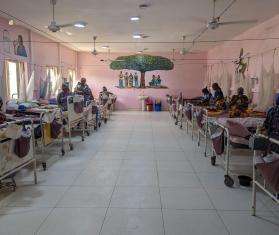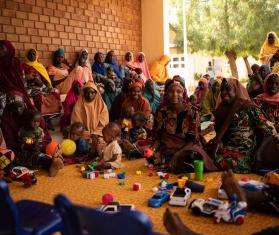Many health care facilities in Nigeria are barely functioning due to understaffing and drug shortages, while some have closed altogether. The ones that remain open are often inaccessible to people struggling with rapid inflation and widespread poverty. During the year, MSF teams continued to support people fleeing violence and respond to outbreaks of preventable diseases such as cholera, Lassa fever, and measles, which have become recurrent in the country, due in part to extremely low vaccination coverage. Nigeria is already experiencing the impacts of the climate crisis and in 2024 was hit once again by severe floods, which destroyed homes and crops, compounding these health issues.
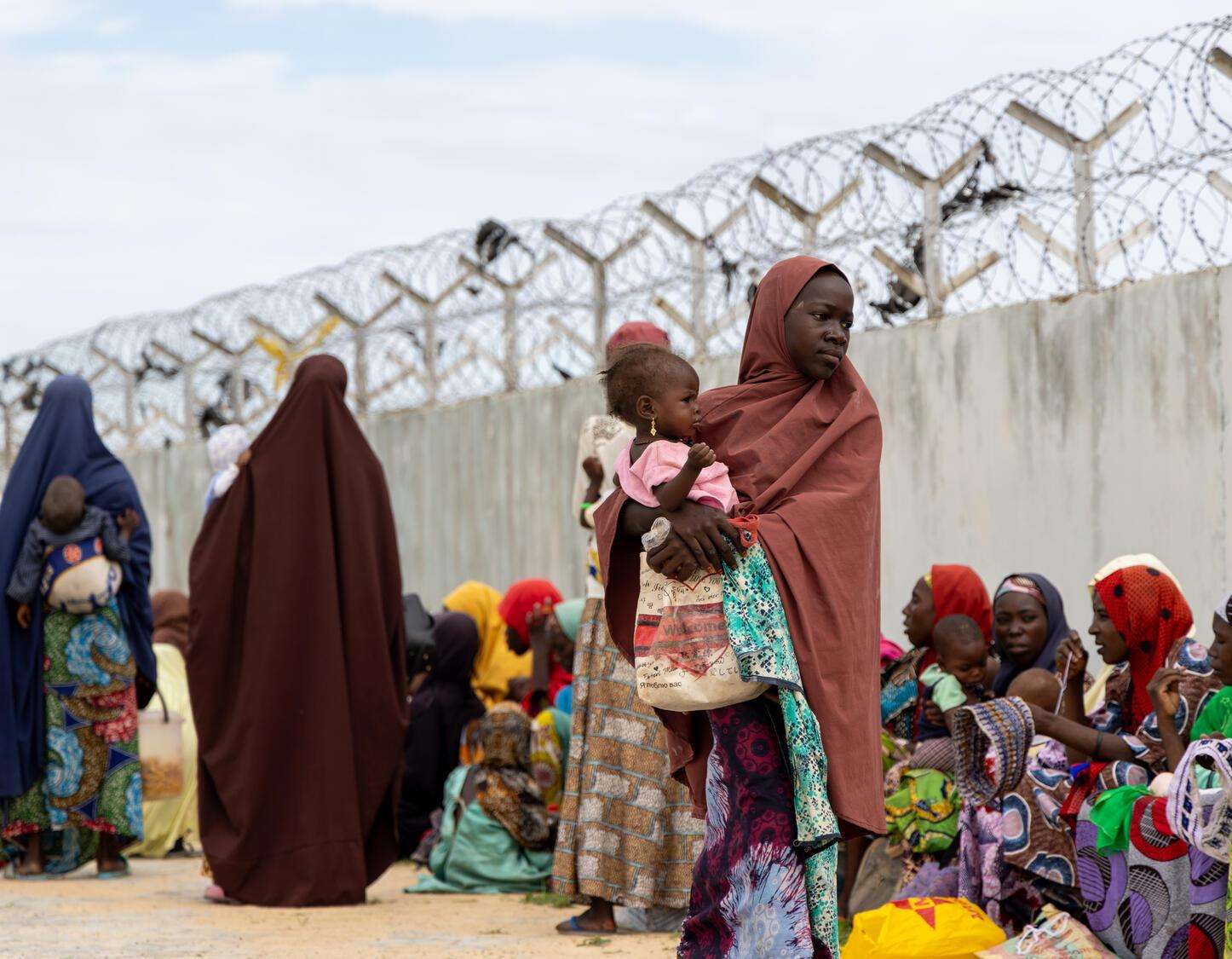
Nigeria 2023 © Ehab Zawati/MSF
Nigeria
Ongoing conflict in Nigeria has killed thousands and displaced millions of people, while soaring malnutrition cases and a diphtheria outbreak add to people’s health needs.
Malnutrition in Nigeria: “I don’t know how to say it any more clearly. This is an emergency”
September 11, 2025 — In Nigeria's Kebbi state, since June more than 400 severely malnourished children have been hospitalized each week in the inpatient therapeutic feeding centers Doctors Without Borders/Médecins Sans Frontières (MSF) runs, while over 1,400 are admitted for outpatient care weekly. These numbers are staggering—and they’re still rising. In a new account, Katrin Kisswani, a nurse and president of MSF Belgium, shares what the team is witnessing on the ground.
Our work in Nigeria
Doctors Without Borders/Médecins Sans Frontières (MSF) is working to address the many health challenges in Nigeria posed by continued violence, natural hazards, and a lack of health care, including alarming malnutrition rates and disease outbreaks.
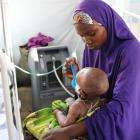
What's happening in Nigeria?
In recent years, conflict, extreme weather events, and deteriorating economic conditions have plunged Nigeria’s northern regions into a deepening humanitarian crisis. Millions of people are living in increasingly vulnerable circumstances as they face catastrophic levels of malnutrition and outbreaks of preventable diseases.
Widespread violence and unrest have driven millions of people from their homes, who have extremely limited access to medical services due to the lack of functioning health care facilities and financial and security challenges involved in traveling to those that are still working.

How we're helping in Nigeria
Our teams in Nigeria support displaced and host communities affected by violence, providing health services including vaccination, maternal health care, and malnutrition treatment, among others.
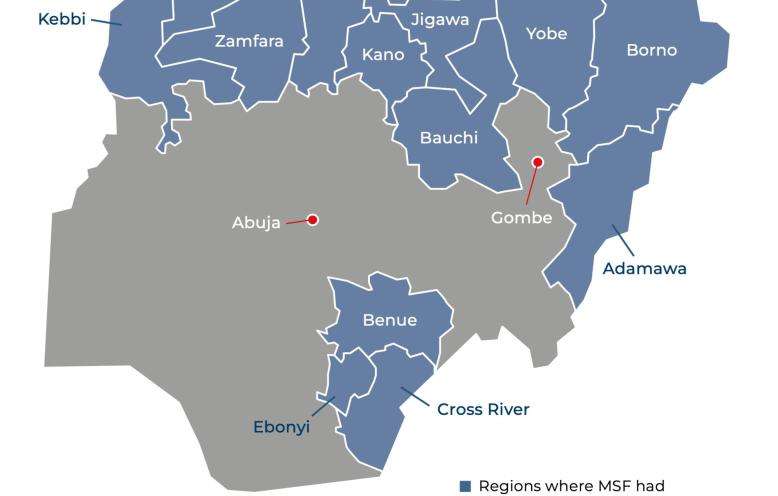
How we're helping
1,668,100
Outpatient consultations
696,100
Routine vaccinations
532,200
Malaria cases treated
296,600
Children admitted to outpatient feeding programs
200,600
Patients admitted to hospitals
79,600
Children admitted to inpatient feeding programs
*Data from MSF International Activity Report 2024
More news and stories
Learn about MSF’s journalistic roots and our commitment to bear witness and speak out about the plight of the people we treat.
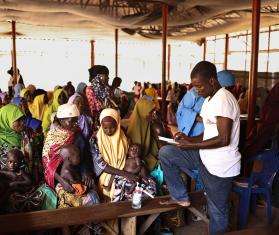
Story Sep 11, 2025
Malnutrition in Nigeria: “I don’t know how to say it any more clearly....
Read moreLearn about MSF’s journalistic roots and our commitment to bear witness and speak out about the plight of the people we treat.
